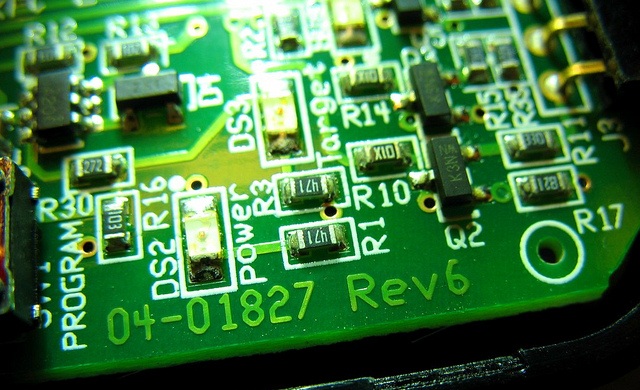One of the biggest stories doing the round on Wall Street these days is that Dell Inc. (NASDAQ:DELL), the Texas-based tech giant is going private. In this article I will be focussing about the Dell Buyout, starting with the Dell story over the years, then moving towards why is Dell going private, who are the players involved, what’s in it for Microsoft (NASDAQ:MSFT) and Dell’s shareholders with analysis of Dell’s Stock and my recommendations. Finally, a comparison with the competitors in the current scenario.

The Dell Story
Dell was founded in 1984 in Texas, US by Michael Dell, who is currently the Chairman and CEO of the company. Dell is one of the largest technological corporations in the world, employing more than 103,300 people worldwide. The company develops, sells, repairs and supports computers and related products and services. Currently, it is the third largest PC vendor in the world after HP and Lenovo. Dell has strong fundamentals with revenues of US$ 63.07 bn and operating income of US$ 4.43 bn for the year 2012.
Dell is known for being a pioneer in innovations in Supply Chain Management and E-Commerce through its unique Customised and Configure to order manufacturing approach for providing customised PCs according to a customer specific requirement.
In the long journey spanning 3 decades, Dell has grown through various mergers and acquisitions like Alienware and Perot Systems. Dell is majorly into PC and Non – PC business (Servers, Storage and Services) and it sells to both B2C and B2B (Mainly Enterprise and Institutions). Gradually, Dell is transforming itself from a product company to a service company.
Why Dell is going Private?
Since 2005, Dell’s Sales growth has slowed due to the maturing PC Market which contributes to 65% of Dell’s sales. The high competition and fragmentation has led to PC Market to mature and with the boom in the sales of alternate devices like smart phones, tablets etc. the sales of PC have declined. The Dell stock lost 25% of its value in 2005. By June 2006, the stock was trading around $25 which was 40% down from July 2005 which was the high watermark of the company in the post-dotcom era.
Dell needs to reduce its overdependence on PC Business and focus to grow its Non – PC business (Servers, Storage, and Services) and Enterprise business to sustain.
Dell underwent a restructuring in its operations with reducing headcounts and diversifying its product offerings with the launch of the new initiative “Dell 2.0”.
Since past 7 years, Dell stock has taken a huge hit with the current stock trading around $13.63. For the success of Dell 2.0 there is a need for Dell to go private through a leveraged buyout. Going private would allow Dell, which has been trying to become a one-stop shop for corporate technology needs as the PC market shrinks, to conduct that difficult makeover away from public scrutiny. Dell has been struggling to perform well financially and has been beaten down by the public market over the past few quarters. By going private, they will no longer have to take this abuse and can take higher risks and focus on the longer term – rather than having to concentrate on improving performance quarter-on-quarter for shareholders.
The Players Involved
Dell Inc. is edging closer to an agreement to sell itself to a buyout consortium led by Michael Dell, its founder and chief executive, private equity firm Silver Lake Partners and Microsoft in a deal that could top $24 billion. The official announcement is expected early this week. Michael Dell is likely to take on majority ownership of the company, with Silver Lake and Microsoft Corp. becoming minority investors. Negotiations are going on deciding the buyout price which can be between $14 and $14.5 per share. This translates to an equity valuation of the company to be around $24.4 billion.
As part of the transaction, Michael Dell may contribute equity financing of $500 million to $1 billion in addition to his approximately 16 percent stake in Dell, worth about $3.6 billion, to push his ownership above 50 percent and have majority control. Partners – private equity firm Silver Lake and Microsoft would contribute $1 billion to $3 billion each.
According to Reuters, up to $15 billion has been secured in debt financing from Barclays, Bank of America Merrill Lynch, Credit Suisse and RBC Capital.
What can be Microsoft’s motive for Investing in Dell?
Microsoft may invest $1 billion to $3 billion in Dell but the question is what’s in for Microsoft?
Since the last few years Microsoft is facing tough competition from Apple and Google both in the software business and hardware. Apple’s iOS and Google’s Android are giving a tough fight to Windows which has led to a sharp decrease in Market Share for Microsoft. Microsoft knows that the future lies in having a complete end to end solution in a form of a great operating system bundled in a hardware device. Microsoft wants to push harder into hardware business and has launched the surface tablets under its brand. Microsoft’s efforts haven’t lived up to expectations. Sales of the Surface tablets, which run the Windows 8 operating system, have not gained traction, although there are some indications that sales of Windows Phone 8 devices are doing better.
With making an investment in Dell, Microsoft can improve enterprise sales and support, especially when it comes to hardware. Microsoft can tap Dell’s expertise in the design, manufacture and-most importantly-the sale of PC hardware to corporations.
Microsoft can leverage upon Dell’s online sales platform to increase the sales of surface tablets. The deal can help Microsoft and Dell to create a one stop shop for corporate customers.
With having a strong partner on the line of Microsoft can help Dell to increase pressure on competitors like HP, which is already struggling.
Competitive Landscape
HP, Lenovo and Acer are the biggest competitors of Dell. Infact, Dell is currently 3rd largest PC maker after HP and Lenovo.
HP (NYSE:HPQ)
HP is struggling with its PC business which has reported negative quarterly revenue growth ( – 0.07%). But still HP is insisting on keeping the PC business and not selling it. HP has a market cap of $37 billion, but its operating margin is quite less around .08 as compared to 0.32 as of the industry. HP’s Stock has lost value and is currently on the level of $ 16.46, stock is struggling with a negative EPS (- 6.41).
Lenovo
Lenovo is going strong in the PC business with the acquisition of IBM PC business in 2005. The stock enjoys strong fundamentals and is currently trading at $ 21.43. Its P/E of 19.48 is best in the industry and shows positive sign of growth in the stock’s future price. With strong operating margin and growth rate, Lenovo’s Stock is expected to do well in future and my recommendation is a buy on Lenovo

 Hot Features
Hot Features













